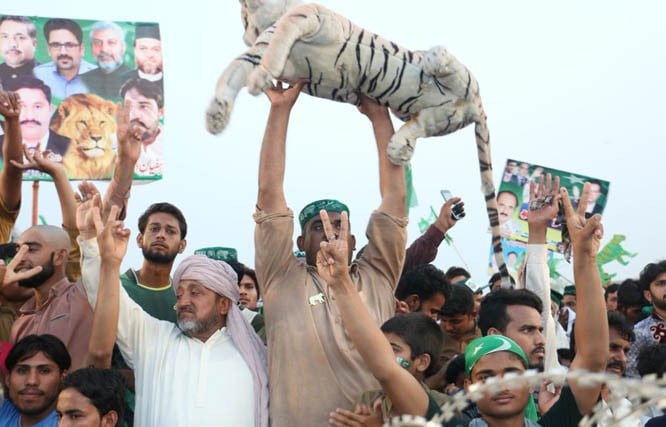
In this age of social media campaigning, the political party worker seems to have lost prominence

Political party workers have historically been a bridge between their party leadership and the masses and promoters of their party’s ideology. They are also the face of their political party and the first point of contact for people.
Party workers are party members as well but the latter may not be a party worker. A party worker remains active and works for the promotion of his party’s image. He also strives to ensure that the existing vote bank of the party remains intact and more voters are brought to the pool.
Another self-assumed responsibility of party workers is that they help people in their localities in their day to day problems. They accompany them to the offices of utility services companies, police stations, local government offices, etc., and try to solve their problems through their contacts with the staff working at government offices.
All they expect in return is a commitment to extend support to their party, or at least spread the word about their good deeds. The party workers do this service regardless of whether their party is in power. However, those from the ruling party enjoy the support of their leaders and the state machinery cooperates with them.
The role of party workers was highly important during the 1970s when there was an ideological tussle between the right and left and the party worker was the most important weapon. It was a time when Zulfikar Ali Bhutto’s slogan of roti, kapra aur makan (food, clothing and shelter) did wonders and led to the creation of a breed of die-hard party workers called jialas.
They were committed to the cause of the Pakistan People’s Party because this slogan made them dream of an imminent end to inequality and discrimination. Party workers had access to their leaders and were often seen sitting with them on stage. In times of need, they would turn up and show their street power as well, offering arrests to show support for their leaders.
The situation today is quite different in which a party worker seems somewhat irrelevant. "There may be hundreds of thousands of members of a political party but very few of them would qualify as party workers," says Abdul Qayyum Kundi, a PTI leader willing to contest national assembly elections from a constituency in Karachi.
"There is no political training available for aspiring workers and political parties are prone to accommodating sycophants rather than dedicated workers. In the absence of student unions, trade unions, etc, today’s generation has no idea of what political activism is," he says.
Citing the example of his own party, Kundi says it brought hundreds of thousands of members into its folds through text messages but could not transform even a fraction of them into committed party workers. "Most of these members feel comfortable posting things on social media but do not reach out to the masses in the real world to promote their party’s ideology or even vote on election day," he adds.
Kundi thinks the changing composition of political parties has discouraged commoners who think there is nothing left for them. In the current scenario, he says, "families are heading political parties and are in liaison with other strong families in different constituencies. These people take their decisions independently and workers’ suggestions are not welcome at all."
Read also: The class of 1985
Mass media and social media have left little space for party workers who would go from door to door and represent their parties at the grassroots level. Politicians hire people for election day management and do not need the support of workers who would perform these functions for free.
Farooq Tariq, spokesman Awami Workers Party (AWP), also draws a clear line between party workers and members and says the former works with passion and without any material benefit whereas the latter may have interests to watch. He says his party gets Rs10 annual fee from its members and expects them to work for the promotion of its ideology and raise funds for the good work it does. "Our focus is on having dedicated workers not sleeping members."
He hopes the party’s struggle for the katchi abadi dwellers in the city will pay off. "This is an example of how the struggle of party workers translates into support for the party," he says.